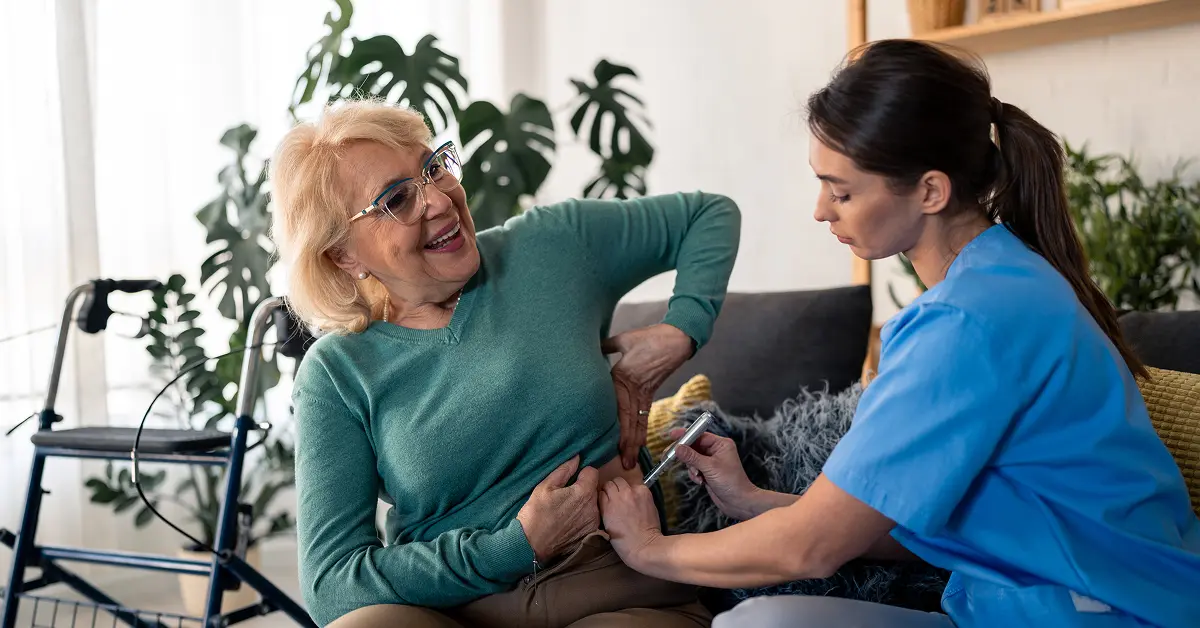As our parents and loved ones grow older, their need for care and assistance often increases. Deciding on the right kind of care can be challenging and emotional. While nursing homes and assisted living facilities are popular options, in-home Elderly Care Services is increasingly being recognized as the best and most compassionate solution. This blog post explores the many reasons why in-home care stands out as the preferred choice for senior care, combining professional support with the comfort of home.
Comfort of Familiar Surroundings
One of the most significant benefits of in-home elderly care is the ability to remain in a familiar environment. For seniors, their home is more than just a place — it’s filled with memories, personal belongings, and a sense of security. Being surrounded by these familiar things can have a profoundly positive effect on mental and emotional well-being, reducing feelings of anxiety, confusion, and loneliness that are often seen in institutional settings.
Personalized and One-on-One Care
In-home care allows seniors to receive tailored attention based on their unique needs. Unlike busy nursing homes where staff must attend to multiple residents, caregivers in a home setting can focus entirely on one person. This results in better quality care, with caregivers customizing daily routines, medications, meals, and activities to fit the senior’s preferences and requirements. Personalized care not only improves health outcomes but also boosts the senior’s dignity and self-esteem.
Independence and Control
Maintaining independence is crucial for many seniors. In-home care empowers elderly individuals to make choices about their daily lives — when to eat, when to rest, what activities to engage in, and how to manage personal routines. This sense of control fosters happiness and reduces feelings of helplessness often associated with moving into a facility where schedules are rigid and communal.
Stronger Family Connections
When elderly care happens at home, family members can stay actively involved in their loved one’s life. This helps maintain strong emotional bonds and gives families peace of mind knowing their parents or grandparents are safe, comfortable, and well cared for. Frequent visits and interactions become easier, which can significantly reduce feelings of isolation and depression in seniors.
Reduced Risk of Infections
Nursing homes and assisted living facilities, despite their best efforts, can sometimes be hotspots for infections and communicable diseases. Seniors are more vulnerable to illnesses, and exposure to many people in communal living can increase health risks. In-home care minimizes exposure to these risks by limiting contact to trusted caregivers and family members, providing a safer environment.
Flexibility and Convenience
In-home elderly care is incredibly flexible, allowing families to choose the level of assistance their loved ones require. Whether it’s a few hours of help daily or round-the-clock care, in-home services can be adjusted as needs change over time. This flexibility also allows for smooth transitions as seniors age, avoiding sudden moves or drastic lifestyle changes.
Cost-Effectiveness
While it might seem that in-home care is more expensive, it can often be more cost-effective than assisted living or nursing homes, especially when care needs are not around-the-clock. Families can opt for part-time help, reducing overall expenses. Additionally, avoiding the emotional and physical costs of relocating seniors to unfamiliar places offers invaluable benefits that money cannot quantify.
Enhanced Mental and Emotional Health
Studies have shown that seniors receiving care at home tend to have better mental health compared to those in institutional settings. Familiar surroundings, continued routines, and the ability to engage in meaningful activities all contribute to lower rates of depression, anxiety, and cognitive decline. Moreover, one-on-one attention helps caregivers identify early signs of health changes and address them promptly.
Promotes Healthy Lifestyle Choices
Caregivers who work in-home can assist seniors with meal preparation tailored to their nutritional needs and preferences, ensuring they eat balanced and healthy meals. They also encourage regular physical activity and social engagement, both of which are essential to maintaining health and vitality in old age.
Peace of Mind for Families
Finally, in-home elderly care provides tremendous peace of mind to family members who may not be able to provide full-time care themselves. Knowing that a trained, compassionate caregiver is there to assist with daily tasks, monitor health, and provide companionship can relieve stress and guilt for families juggling their responsibilities.
Conclusion
Choosing the right care for aging loved ones is one of the most important decisions families face. In-home elderly care offers a compassionate, effective, and dignified solution that prioritizes comfort, independence, and personalized support. It creates an environment where seniors can thrive physically, mentally, and emotionally while staying connected to family and community. For these reasons and more, in-home care is truly the best solution for elderly care today.
Contents
- Comfort of Familiar Surroundings
- Personalized and One-on-One Care
- Independence and Control
- Stronger Family Connections
- Reduced Risk of Infections
- Flexibility and Convenience
- Cost-Effectiveness
- Enhanced Mental and Emotional Health
- Promotes Healthy Lifestyle Choices
- Peace of Mind for Families
- Conclusion
Our 24*7 services
Latest Posts
- What Is Respite Care and Why Is It Important
- Affordable home care for senior citizens in India
- Caring for Seniors with Dementia or Alzheimer's at Home
- Senior Caregiving A Guide for Every Family
- How to Write a Caregiver Resume That Gets You Hired
- How Care After Hospital Discharge Speeds Up Recovery at Home
- How to Get Home Health Care for Seniors Through Medicare
- What Does a Senior Citizen Caregiver Really Do at Home
- How to Care for Elderly Parents with Alzheimer’s or Dementia
- How to Get 24-Hour Care for Seniors at Home


